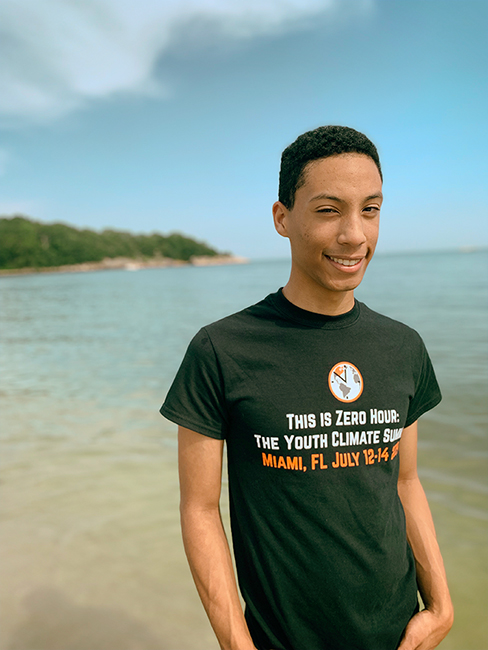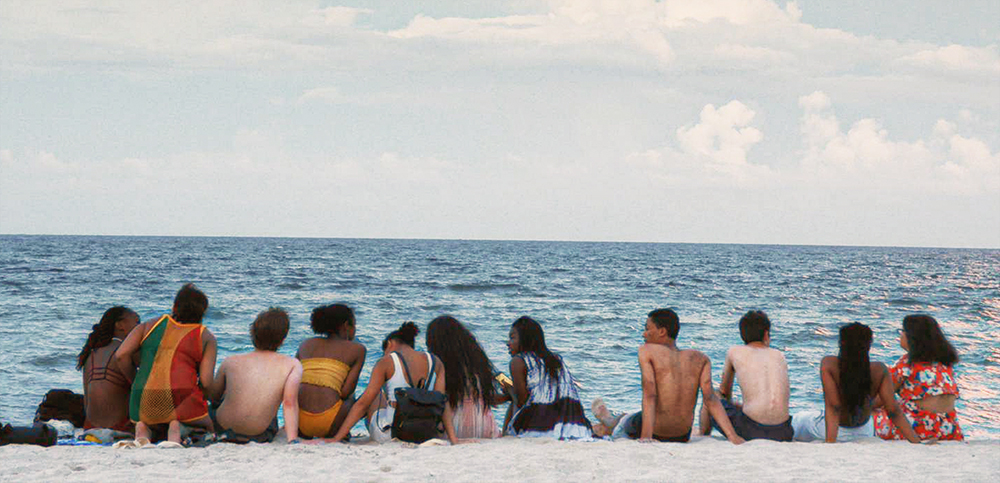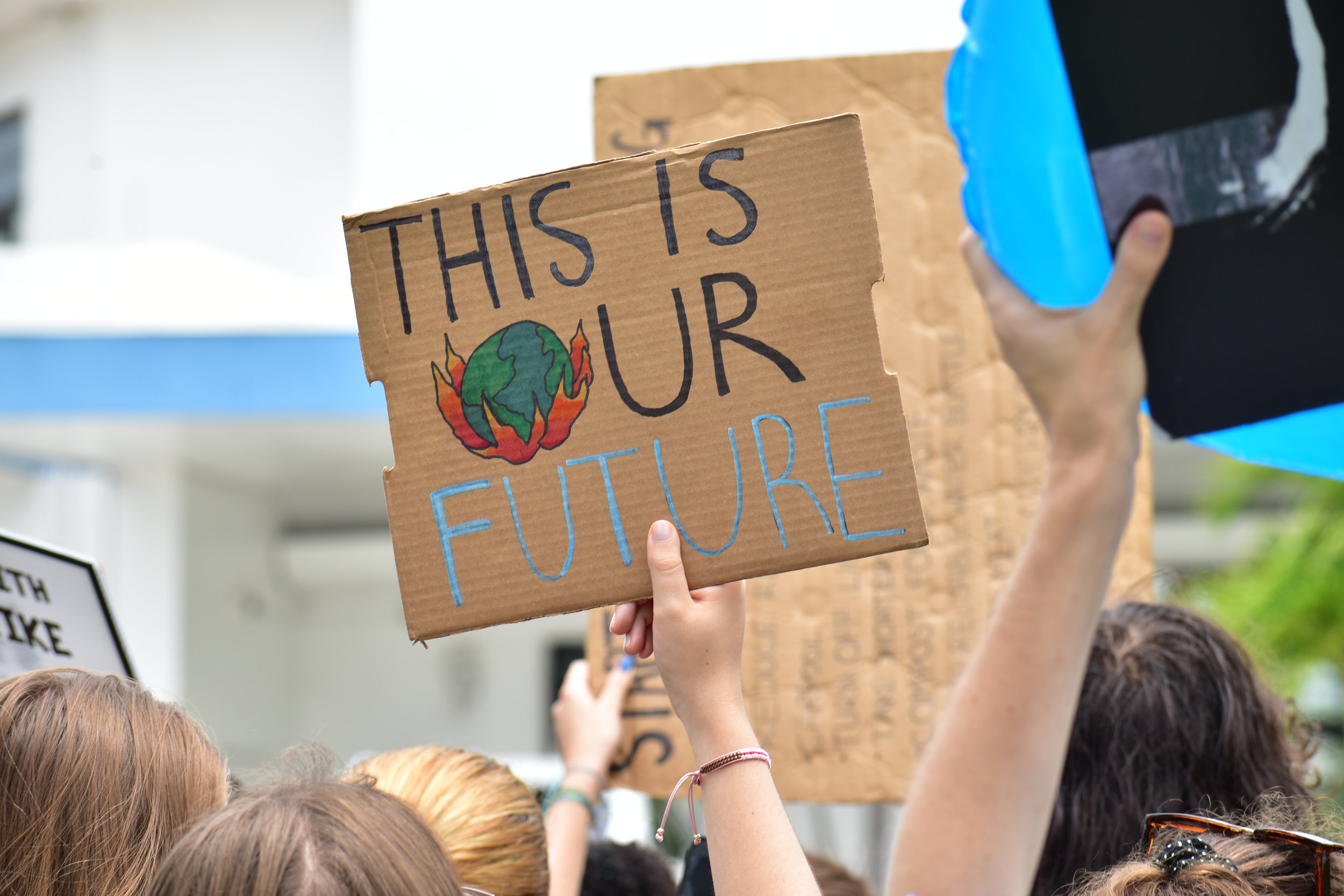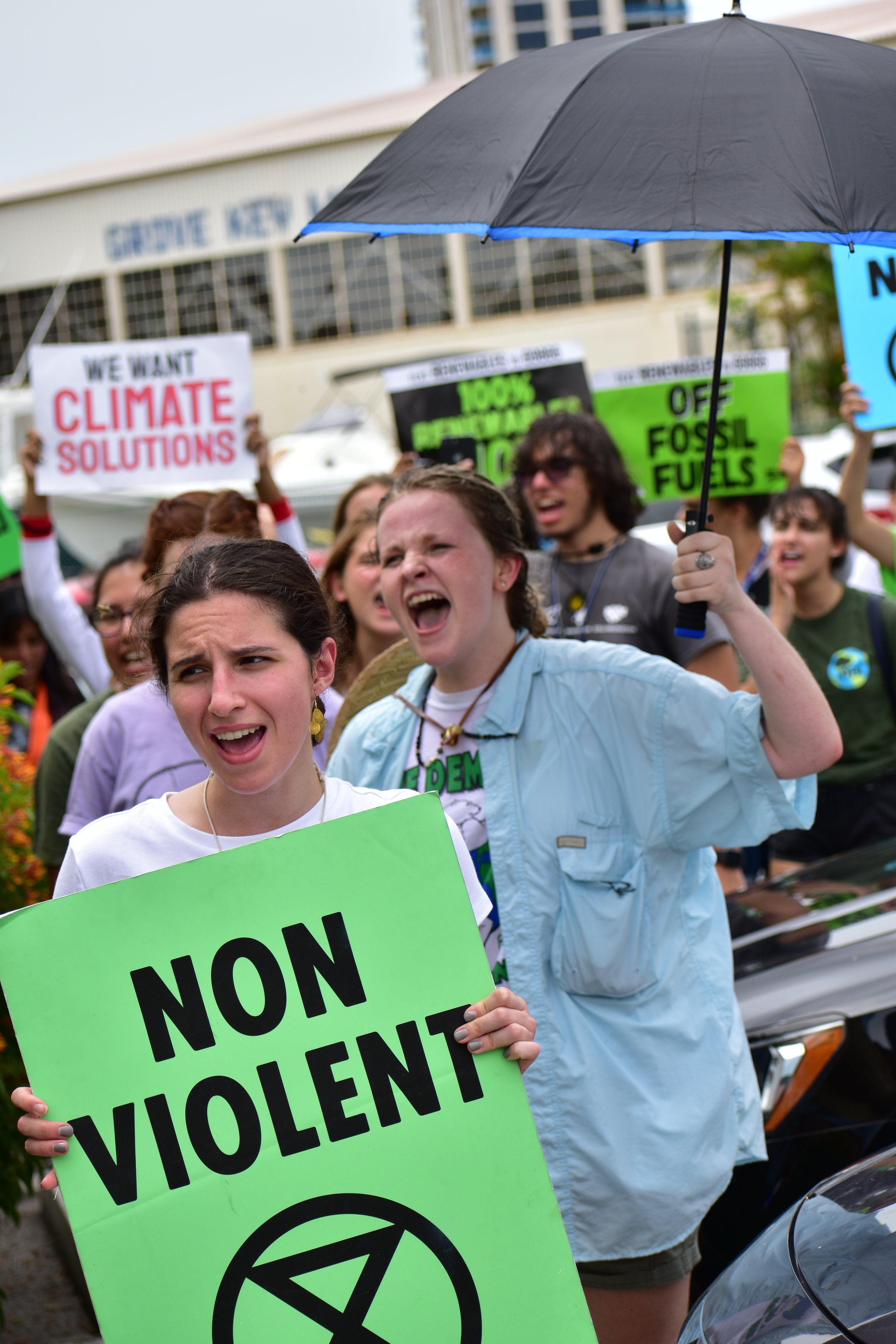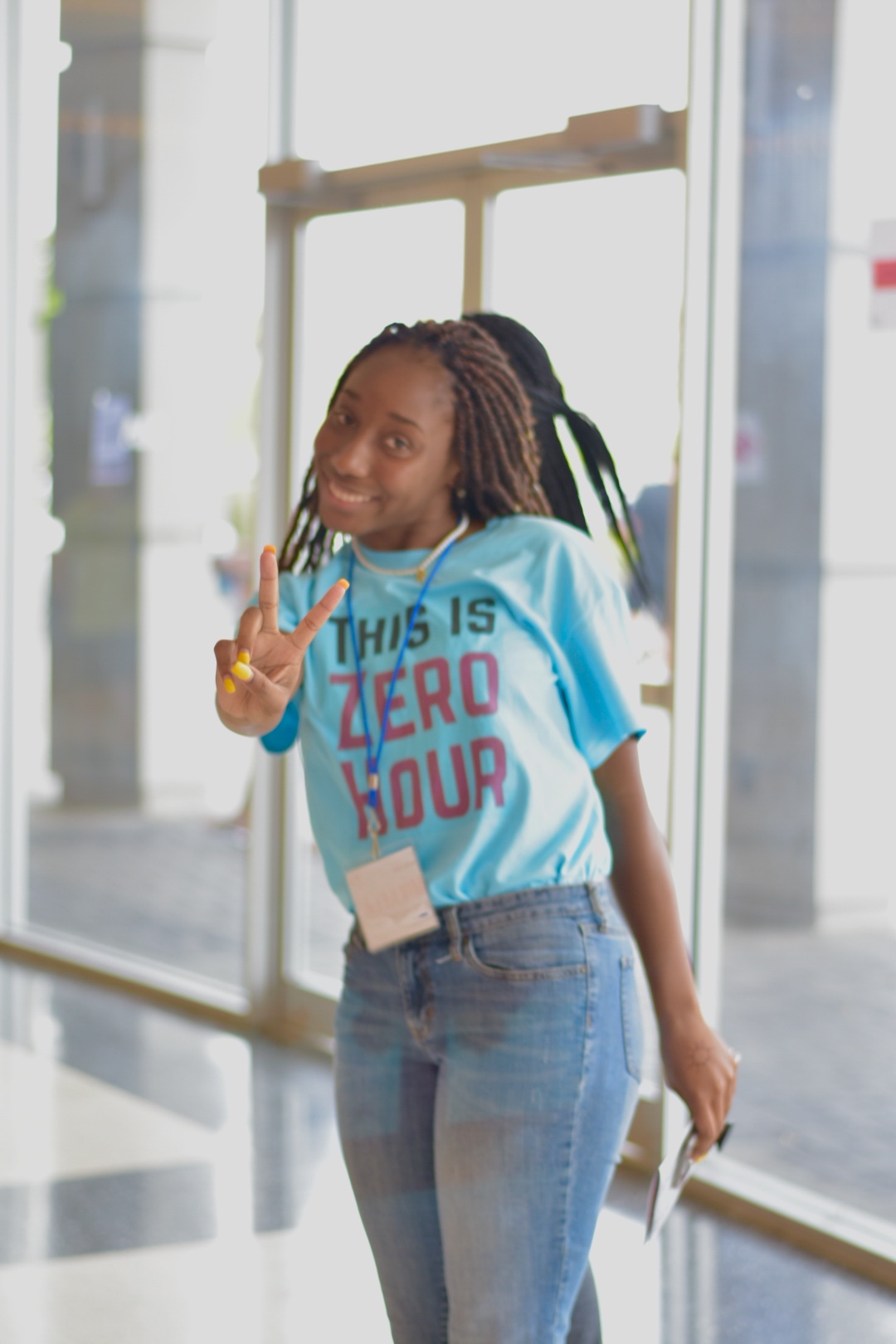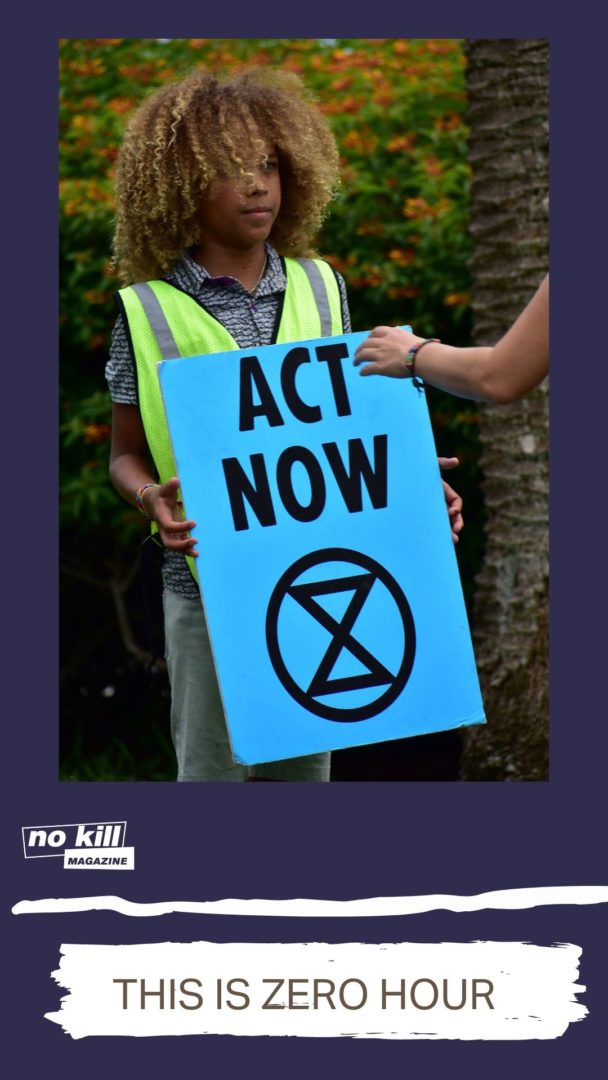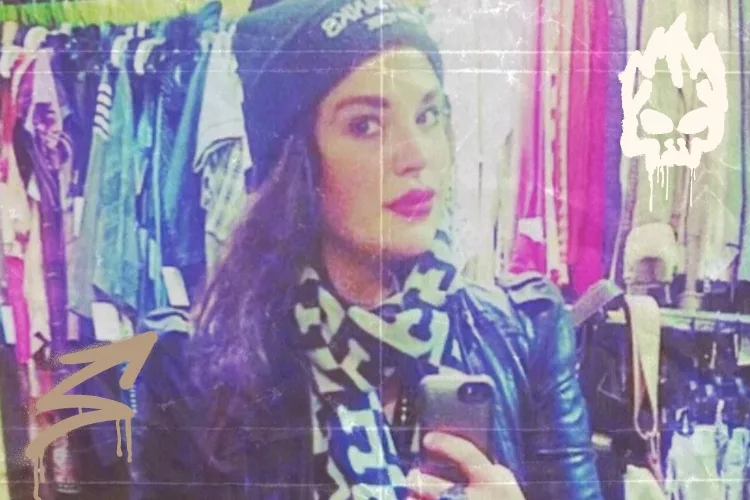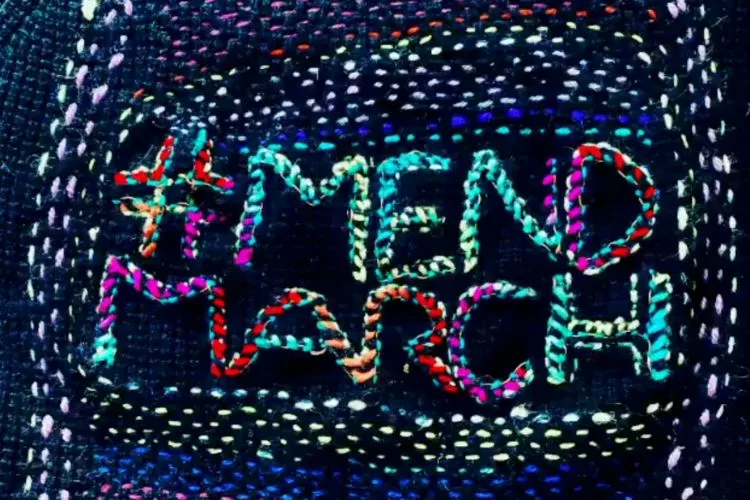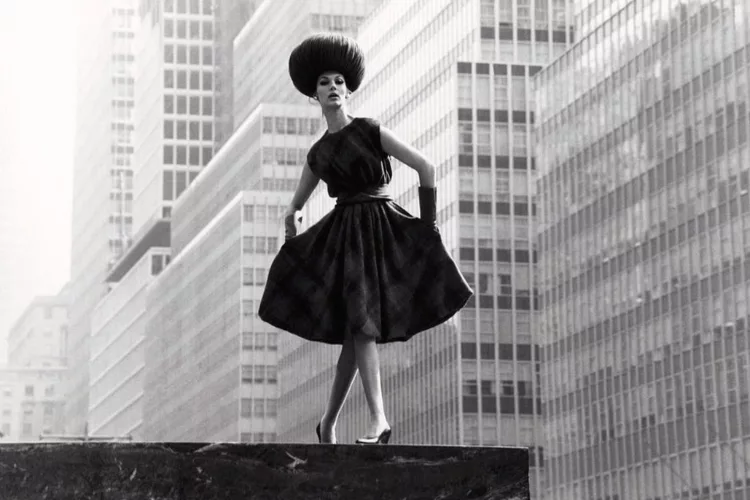Zanagee Artis + This is Zero Hour
This is the first of Kids in America: a series of snapshots of young activists who are on the front lines of creating positive change in various arenas.
Name / Age: Zanagee Artis / 19
Preferred Pronouns: he/him
Current city:Hometown: Clinton, CT
Attending school at Brown University (Providence, RI)
What is your cause?
My cause is fighting for a livable climate with a focus on inclusive and restorative climate justice for those on the front lines of the climate crisis.
How does Zero Hour do this?
Zero Hour was founded with the goal of elevating the voices of young people of color and people on the front lines of the climate crisis because their perspectives on this issue have historically been left out of the conversation.
How did you begin being an activist?
Having lived on the coast of Connecticut for more than half my life, water and the livelihood of marine life has always been important to me. As a high school student I founded my school’s sustainability committee, and we raised enough money to install a water bottle fill station. Before co-founding Zero Hour I thought that reducing plastic waste to prevent pollution in our oceans, as well as reducing energy consumption, was the best way for me to get involved in environmental activism. However, when I co-founded Zero Hour and began working with other youth activists and adults who had experience organizing I began to focus my efforts more on the direct impact climate change is having on people.
What have you learned in the process?
During my time organizing with Zero Hour I’ve learned that it is only possible to continue doing this work if you are with people who care about the issues as much as you do and are willing to build community. Fighting against systemic oppression and the fossil fuel industry that is so entrenched in our everyday lives can be a very daunting challenge, but I’ve found that doing this work alongside people that you grow to love makes organizing fun, despite the enormity of the task that we’ve inherited.
Who have you found to be influential for you on this path?
My parents have definitely been influential for me as an activist because of their involvement in the movement for same sex marriage equality. As a young kid I was with my parents throughout their fight alongside GLAD as plaintiffs in the case that brought same sex marriage equality to Connecticut. Despite not knowing the full extent of what they accomplished at the time, they showed me that you can win against the odds when fighting for what you believe in and what’s right.
Tell us about a moment that was successful to you.
Organizing the Youth Climate March and seeing the high turnout, despite pouring rain on the National Mall, was definitely a moment of success for me. As logistics director I led the team that coordinated the staging and sound, retrieved permitting from the National Park Service, Metropolitan Police, and the Capitol Police, and created the march route. Being able to witness firsthand the organizing work of an entire year, and walking in the street with so many people on a march route that I had only seen digitally was an amazing experience.
What’s an ongoing challenge?
I think that a major ongoing challenge for grassroots organizers is trying to measure tangible success. Especially because of how our education system is set up to correlate success with getting good grades, we tend to measure success in other areas of our lives based on things like high turnout and social media followings. It’s definitely a challenge to do this work because that kind of tangible form of success simply isn’t available. After our march, and our Getting to the Roots of Climate Change presentations around the country, participants leave and we rarely know what kind of an impact we made on that group of people.
And how do you combat that and keep your spirits up?
The way that I have combated this uncertainty about success has been to re-frame how I view success. I think that even if we inspire one person in a crowd to build a network of grassroots organizers in their own community then that is a success, because that means that we gained one more passionate person in the movement who will go on to inspire more leaders.
What resources would you recommend to people who want to help fight climate change?
Reading through the Zero Hour People’s Platform is definitely a great starting point for anyone to learn about climate justice and the many different things that we can do to combat the climate crisis. However, we need people to become active participants in the movement rather than passive supporters who do nothing more than educate themselves. Supporters can do this by starting their own local Zero Hour chapter, and instructions on how to do so can be found on our website!
Zero Hour team relaxing in South Beach post Summit. Photo by Bryant Fisher
In your free time where can we find you / what do you like to do?
In the summer, I spend a lot of time relaxing at the beach, hiking, biking, and kayaking with family and friends. During the school year, I can be found in a spin class with friends, watching movies in a lounge, or spending time in downtown Providence during my free time.
Do you have a favorite quote?
Injustice anywhere is a threat to justice everywhere. We are caught in an inescapable network of mutuality, tied in a single garment of destiny. Whatever affects one directly, affects all indirectly. -Martin Luther King JR
This quote really resonates with me. I do grassroots organizing work because although I am not directly impacted by the construction of fossil fuel infrastructure, I understand that this is a privilege and that we are all impacted by the pollution that burning fossil fuels creates. Additionally, I believe that the first sentence speaks to the idea of a just transition to renewable energy. We cannot simply say transitioning to sustainable energy would be justice for people impacted, because it would be an injustice not to include the people whose livelihoods depend on the existing industry.
Images above from This is Zero Hour: The Youth Climate Summit in Miami courtesy Zero Hour. Top Portrait of Zanagee Artis by Gezani Artis.
Instagram: @thisiszerohour Twitter: @thisiszerohour Facebook: Zero Hour Thisiszerohour.org

